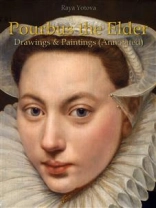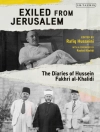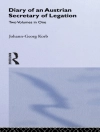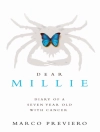Frans Pourbus the Elder was native from Bruges. His parents were famous Flemish artist Pieter Pourbus and Anna Blondeel, a daughter of a well-known artist and architect Lancelot Blondeel.
Pourbus the Elder began his learning under his parent Pieter Pourbus who trained the son to work in the conventional painting manner. When Frans was a boy, he was only subordinate in the father’s studio. In 1564 he was listed as a functioning painter in the studio of Frans Floris who was largely...
Frans Pourbus the Elder was native from Bruges. His parents were famous Flemish artist Pieter Pourbus and Anna Blondeel, a daughter of a well-known artist and architect Lancelot Blondeel.
Pourbus the Elder began his learning under his parent Pieter Pourbus who trained the son to work in the conventional painting manner. When Frans was a boy, he was only subordinate in the father’s studio. In 1564 he was listed as a functioning painter in the studio of Frans Floris who was largely prominent history painter and portraitist in Antwerp.
The Pourbus’ master, Floris, is presented a movement in Northern art named Romanism. The representatives of this movement had moved to some Italian town to learn the paintings of foremost Italian painters. Their art after that absorbed the Italian experience into the Flemish art practice.
Floris almost immediately identified the enormous capacity of his new scholar and permitted him to finish his incomplete paintings. In his studio, young Frans attained an additional technical skillfulness.
Frans Pourbus unlike lots of the Flemish painters at the epoch did not have a desire to travel to Italy. Instead, he remained in Antwerp permanently where he settled down to live and work and built his own family. His first son later became a portraitist with European fame and was prominent as Pourbus the Younger.
Pourbus the Elder was listed as a master painter of the “Saint Luke” Guild of Saint Luke in at least two Flemish towns. He was befriended with the famous portraitist Anthonis Mor. It has been supposed that Pourbus’ mature paintings exposed the great influence of Mor’s style.
After 70th of 15th century Pourbus the Elder concentrated more and more in portrait painting and progressively abandoned religious paintings.
He became seriously in poor health around his forties and soon died as a result.
Frans Pourbus the Elder is famous above all for his portraits and in a much more limited circle of connoisseurs of his art to his religious and genre works. His sitters for portraiture were for the most part from the increasing class of reach merchants.












